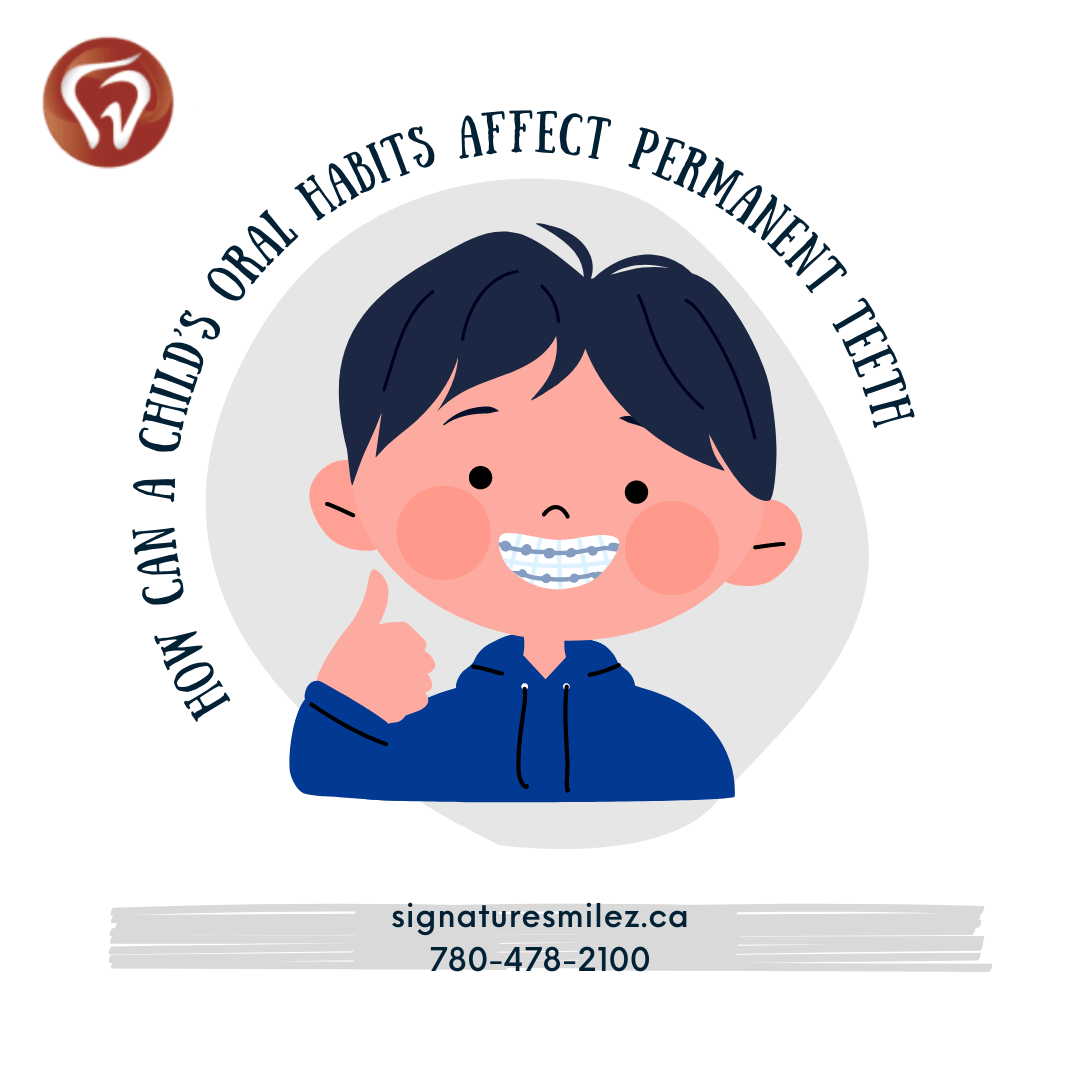As children grow and develop, their primary teeth begin to fall out and are replaced by permanent teeth. However, the way a child cares for their primary teeth can have a significant impact on the health and development of their permanent teeth. In this blog, we will explore some of the oral habits that can affect the health of a child’s permanent teeth and what parents and caregivers can do to help ensure that their child’s teeth develop properly.
One of the most important oral habits for children to maintain is proper oral hygiene. Brushing and flossing regularly can help to prevent tooth decay and gum disease, which can lead to the loss of primary teeth and damage to the permanent teeth that are developing beneath them. In addition, children should be encouraged to limit their intake of sugary and acidic foods and drinks, as these can also contribute to tooth decay. A good oral hygiene routine should include brushing twice a day with fluoride toothpaste, flossing twice a day, and using mouthwash to kill germs and freshen breath.
Another oral habit that can affect the health of permanent teeth is thumb-sucking or pacifier use. Prolonged use of these can cause the front teeth to become misaligned and can also change the shape of the palate. This can lead to difficulties with biting and chewing and can also cause problems with speech development and aesthetics. Parents should try to discourage this habit as early as possible.
Another habit that can affect the health of permanent teeth is tongue thrusting. This is when a child pushes their tongue against their front teeth. This habit can cause the front teeth to flare out and can also change the shape of the jaw. This can also lead to difficulties with biting and chewing and can also cause problems with speech development. Parents should be aware of this habit and consult a dentist if they notice it in their child.
Another habit is improper biting and chewing: Biting and chewing hard objects such as ice, fingernails, or pencils can cause damage to the permanent teeth, leading to chips, cracks, and the need for dental treatment.
Another habit is Bruxism: Bruxism, also known as grinding and clenching of the teeth, can cause damage to the permanent teeth, leading to sensitivity, pain, and the need for dental treatment.
Another one is Bottle feeding. This can have a significant impact on a child’s dental health, both positive and negative. On one hand, bottle feeding provides essential nutrition and hydration for a child’s growth and development. On the other hand, prolonged bottle feeding, especially at night, has been linked to an increased risk of tooth decay. This is because the sugar in the milk or juice remains on the teeth for an extended period of time, allowing bacteria to produce acids that can cause tooth decay.
To minimize the risk of tooth decay from bottle feeding, it is important to:
Limit bottle feeding to mealtimes only and avoid using it as a pacifier.
Use water for night-time feedings.
Clean the child’s teeth after each feeding.
Gradually wean the child off the bottle and onto a cup by the age of 1 or 2.
Start brushing the child’s teeth with a fluoride toothpaste as soon as their first tooth appears.
In conclusion, the oral habits of children can have a significant impact on the health and development of their permanent teeth. By encouraging good oral hygiene, limiting sugary and acidic foods and drinks, discouraging thumb-sucking and pacifier use, watching for tongue thrusting and encouraging regular dental visits, parents and caregivers can help to ensure that children have healthy and strong permanent teeth. It is important to start good oral habits early and make sure that the child understands the importance of taking good care of their teeth.
Contact us today to schedule an appointment and learn more about our services.

